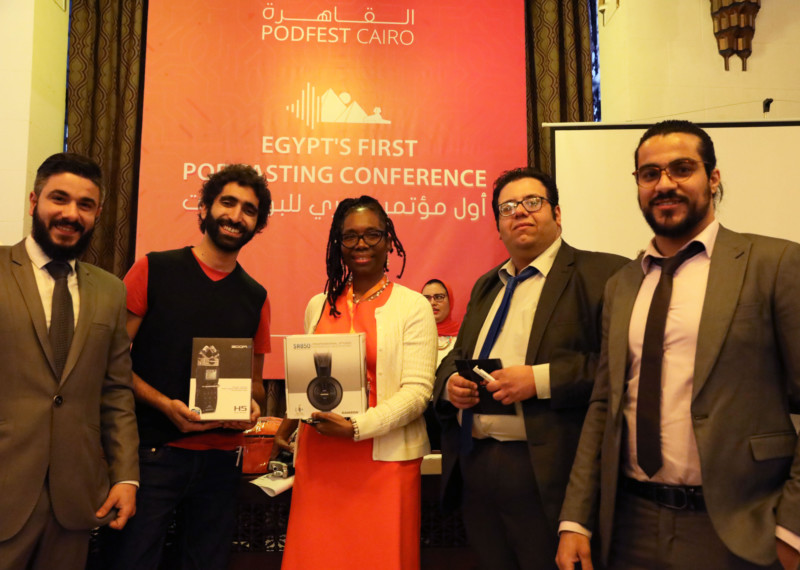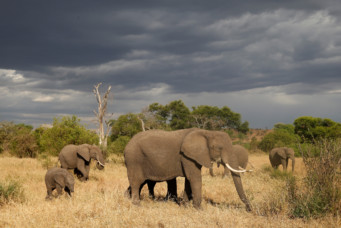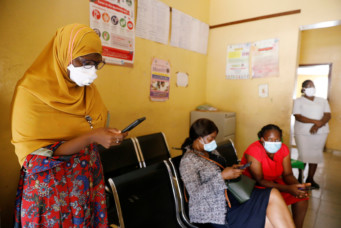African Podcasting: Challenges and Chances
While podcasting in Africa faces many challenges, including prohibitive data consumption costs and the digital divide, it offers the amplification of regional perspectives and audience expansion in return.

With the birth of podcasting in the 2000s, the medium has seen slow growth globally. According to a 2019 Edison Research study in South Africa, 22 percent of the country’s population had heard of podcasting, which was considerably lower than the 77 percent who were aware of podcasting in the United States for the same year. The same report noted that 19 percent of South Africans had listened to a podcast in comparison to 51 percent of Americans who had. Although podcasting is growing in Africa, radio, a close cousin that has been around since the days of colonization, remains prevalent.
Who Are African Podcasters
The largest podcasting markets in Africa include Nigeria, South Africa, and Kenya. When it comes to content, African podcasters do whatever they want using a variety of techniques and formats with a thumbprint that showcases their heritage, place, language, and style, like Sound Africa, a podcast organization which aims to amplify regional voices. While Africa is the second most populated continent in the world, when it comes to conversations about the state of podcasting, Africa is rarely featured prominently.
Listeners can access podcasts globally from any mobile device, however, a lot of people hardly get to see and hear African stories unless they explicitly use an international lens. The media companies which focus on and/or produce global stories tend to gain popularity. For example, non-fiction podcasts about African news appear to be a growing segment, such as the BBC’s The Comb. However, almost none of the major podcast production companies have shows about African podcasting. Without the seemingly bottomless budgets a few new African podcasts have received to go big, to have an African podcast heard far from the continent is rare. Additionally, the African podcasts that get exposure typically sound familiar with commercial appeal in terms of format, content, and tone. This is why opportunities to center podcasting in Africa through gatherings like PodFest Cairo and Africa Podfest exist—to celebrate and support the growth of African podcasters. PodFest Cairo is Egypt and Africa’s first podcasting conference, bringing podcasters and podcast listeners together to share experiences. Africa Podfest is a Kenyan, woman-led company which founded Africa Podcast Day (February 12) and whose primary objective is to cultivate the African podcasting community through networking and sharing resources.
Audiences in Africa
Potential audiences in Africa are similar to those of podcasts in any other part of the world: who knows about podcasting, is interested in them, and knows how to find them.
As podcasters in Africa look to grow their listener base, the numerous African languages present a challenge. Elsewhere, generally speaking, the majority of available podcasts are currently in English, whereas in Africa, podcasts are produced in many of the native languages, including Arabic, and thus reach audiences that are otherwise ignored by podcasters who reside outside of the Global South.
African podcasters are unique in their ability to engage counterpublics by recognizing that they are not centered in the international podcast habitats. Also, globally, including in Africa, traditional radio is tethered to governments in terms of regulation and licensing and thus subject to various levels of censorship. On the other hand, podcasting is more rogue, with niche non-standard formats and topics. As a result, there is an exciting variety of podcasts, including emerging podcasts in true crime, wellness, history, and identity and culture. There is also a reciprocal relationship between the content podcasters are creating and what podcast listeners are interested in; meaning there is a focus on audience engagement. Buoyed by the growth in African podcasts that speak to the African experience, African podcast listenership has expanded.
Challenges Faced
The challenges and barriers to podcasting in Africa are both technological and educational. Weak mobile and internet penetration, though increasing, stifles the ability of the industry to flourish since internet strength is not as robust as it could be. Even with mobile and internet access, the large amount of data consumed by podcast listening presents a problem as the field attempts to develop as an emerging media. Though many popular podcasts on Apple Podcasts and Spotify*—media platforms where many listeners consume podcasts—are in English, in Africa, where it’s estimated that there are at least 1500 languages, podcasts are produced in many languages. This substantially limits potential listenership expansion.
Though the word podcasting may sound familiar to many, the inability to effectively educate potential listeners about what podcasts are and how to access them is another foregrounded obstacle. The former could be tackled with a public facing campaign through a podcast collective, such as PodFest Cairo or Africa Podfest, or by individual podcasters. Once potential listeners have the knowledge to find podcasts, we return to the topic of access, which brings to mind the issue of mobile penetration in Africa as well as the high costs of data consumption. Will the listener have to incur an expense in order to listen to a podcast? If so, Aaisha Dadi Patel, a writer and journalist at the Wall Street Journal Africa bureau, says audiences are more likely to listen to the radio as opposed to undertaking the added burden of trying to find, download, and then listen to a podcast, not to mention the exorbitant cost for data. Also, the cost of accessing podcasts using streaming services is prohibitive.
Along with the data expenses, many of the challenges facing podcasters in Africa are technological and steeped in the digital divide. Many Western podcasters have the luxury of technology infrastructure in podcast creation spaces in addition to access to production equipment. African podcasters produce their podcasts through a variety of approaches, basing their production decision on access to equipment and technology. Some have access to audio studios or utilize smartphones to produce their podcasts, and many do have proper podcasting equipment, such as microphones and computers, to record and produce their podcasts. However, in 2020, the Africa Podcasters Roll Call, a collaboration with PodFest Cairo and African Podfest, revealed that a lot of African podcasters have a do-it-yourself setup for production, and, as a result, their ability to produce high quality audio is hampered. Those succeeding in podcast production also have access to knowledge of advanced audio production and/or can afford studio time.
Finally, the economics of African podcasting are directly affected by market factors, including the internet and access to electricity. Often there is uneven access to electricity with more than a few countries experiencing frequent blackouts and needing to rely on generators.
Podcasting Research in Africa
Just as the podcast medium’s presence is increasing in Africa, so too is research in the field. South African podcasters have seen their community grow and firms, like Edison Research, have taken notice by collecting data on the region, releasing their first report on South Africa in 2019. Scholarly research has also increased. Though the method of data collection was not outlined, in 2020, Nigeria-based Tony Doe Media published data about the podcasting scene with some basic demographic statistics. The study found that the majority of podcast listeners, 70 percent, are male and all listeners listen to podcasts on a mobile device. From an academic perspective, one article, “Podcasts and new orality in the African mediascape” by Reginold A. Royston, was published earlier this year and documents the rise of the medium on the continent.
However, research on African podcasting remains in the early stages. How can African podcasters thrive if they do not know who they are podcasting for, and what their listeners and potential audiences want to hear? As mentioned previously, academic researchers have begun to examine African podcasting in greater depth. Simultaneously podcast organizations, like Africa Podfest, have also collected and disseminated early surveys on podcasting in Africa. By creating a baseline for knowledge on who African podcast listeners are, these efforts will assist in building a profile of African podcast pioneers, expanding understanding on the business of podcasting in Africa, and beginning to paint a picture of what African podcasting by Africans everywhere could look like.
The Future of Podcasting in Africa
According to Statista, Africa is the continent with the youngest population worldwide, with around 40 percent of the population aged 15 and under compared to the global average of 26 percent. With such a large youth population, podcasting has the potential to explode in the coming years. Moreover, barriers to entry are lessening due to knowledge sharing and improvements in technological infrastructures.
Monetization has been the buzzword in podcasting over the past few years, with many potential podcasters seriously inquiring as to how they can make a profit from podcasting. U.S.-based podcasters have widely benefited from inserting brief advertisements, such as live reads, into podcasts, but that proves viable depending on audience size, which is measured by companies like Edison Research and Nielsen as well as some podcast platforms, like Apple.
The ability for African podcasters to disrupt the current podcasting ecosystem is foreseeable despite the challenges they face. One example of this kind of schism came from podcaster and journalist Paul McNally. He was part of the team that utilized WhatsApp to distribute the podcast “What’s Crap on WhatsApp?” about misinformation on WhatsApp and created a community to thwart its spread.
The technological issues for podcast listeners, like data consumption, could unearth unique potential for podcasting on the continent as producers and audiences look for ways to navigate the podcasting ecosystem in a way that is convenient for this part of the world. That could mean developing a podcast distribution method that either uses less data consumption and/or distributing audio content via pre-established platforms like messaging apps.
Africa Podfest reports dating back to 2018 indicate that the types of podcasts released in Africa are consistently hyperlocal to Africa and may vary in language, context, and other features, such as distribution. Additionally, across our mostly Android continent (nearly 84 percent according to Statista’s 2021 data), the average podcaster is young.
For the African podcast ecosystem to continue to grow, it will take investment in the skills and knowledge of young podcasters who are excluded from traditional media networks. They are the drivers of growth for African podcasting and despite the hurdles, one thing is certain: if we do nothing to support African podcasting, few others will.
*For many years Spotify was not available in Africa, but then was introduced to South Africa in March 2018. It became available in Egypt and other parts of Africa in late 2019, however, only for music. The company does not always make announcements about updates or provide details, but podcasts polls are now available via the Spotify app possibly from September 30, 2021.
Subscribe to Our Newsletter





